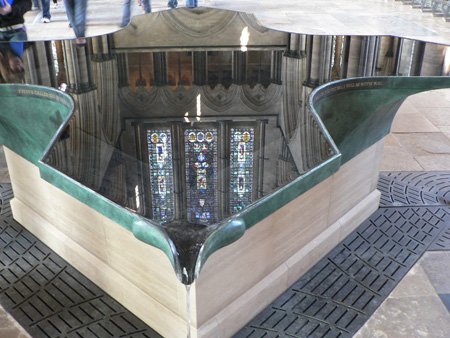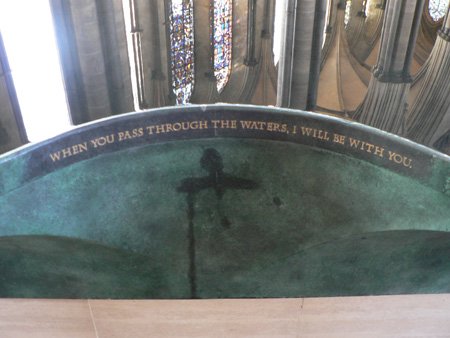
The above pic is one that I took on my recent trip to England.
Whilst I was in Salisbury to preach, I saw this wonderful new font which has just been installed in the middle of the nave.
It is dark and mysterious. Large enough to drown someone in. The dark interior makes the surface of the water reflect all that is around it. The water seems still and calm, yet is actually moving all the time, running over the edge of the corners.
Two things interested me particularly about it. The first was the propensity of people to throw money into it, proving that there are spiritual things deep inside us that refuse to die, no matter how much we try to baptise it out of people through no matter how many centuries.
The second thing was the consecration crosses. They got Archbishop Rowan to consecrate the font using holy oil. Only thing was, no-one worked out in advance that it would not be a trivial matter to wipe them off. And thus they remain. Ghostly and Holy. The whole thing is magnificent. One of the most successful modern commissions I’ve seen.

Recent Comments